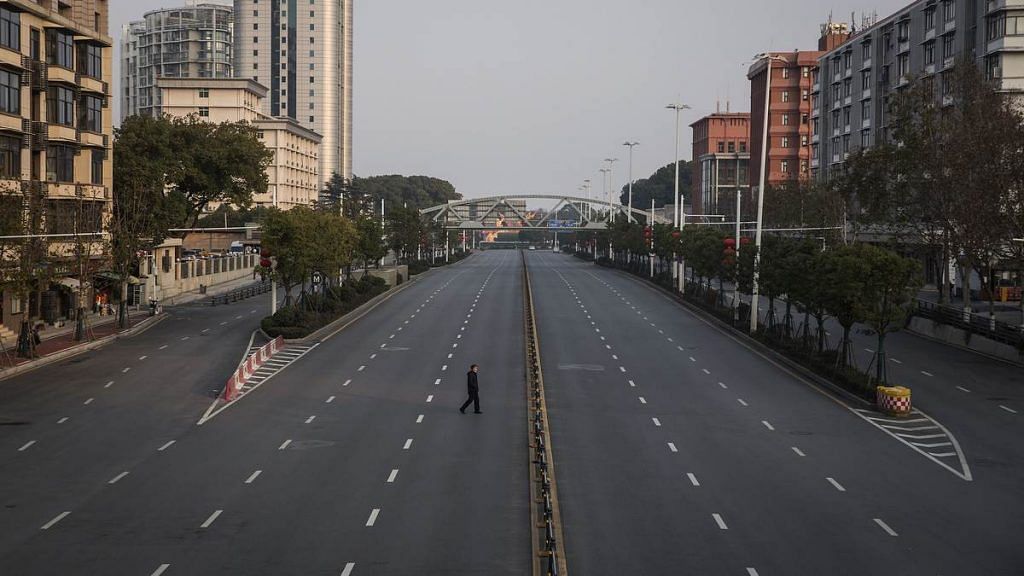New Delhi: As the number of coronavirus cases touches 1,14,000 worldwide, a tweet suggesting that self-quarantine will save lives has been trending on Twitter Wednesday.
Amid uncertainty over the longevity of this outbreak, #FlattenTheCurve is being shared to create awareness on how the outbreak can be contained.
1. A very short thread on the power of data graphics and scientific communication.
Roughly a week ago, some very smart person* sat down, drew this graph, and saved lives.
(*It's 2 AM. Without an economist subscription, I can't quickly discover whom. Maybe someone can help.) pic.twitter.com/eU71Eu60eS
— Carl T. Bergstrom (@CT_Bergstrom) March 6, 2020
Carl Bergstrom, Biology Professor at the University of Washington, wrote: “Looking at the picture, you can see that even if you don’t reduce total cases, slowing down the rate of an epidemic can be critical.”
Epidemiologists have expressed concern over the ‘speed’ of the outbreak since they fear health systems will be overwhelmed by the huge spike in the number of cases of coronavirus.
To contain this, flattening the curve can limit the spread. This can be done by putting oneself under self-quarantine, closing schools, cancelling mass gatherings, working from home, and avoiding crowds.
Our #FlattenTheCurve graphic is now up on @Wikipedia with proper attribution & a CC-BY-SA licence. Please share far & wide and translate it into any language you can! Details in the thread below. #Covid_19 #COVID2019 #COVID19 #coronavirus Thanks to @XTOTL & @TheSpinoffTV pic.twitter.com/BQop7yWu1Q
— Dr Siouxsie Wiles (@SiouxsieW) March 10, 2020
Also read: Better to be solo than sorry: Coronavirus is a perfect excuse for introverts
Relieve health systems
The most critical aspect of self-quarantine is that it takes the pressure off of hospitals and medical clinics.
Emily Landon, infectious disease specialist and hospital epidemiologist at University of Chicago Medicine, said, “If more of us do that, we will slow the spread of the disease”.
“That means my mom and your mom will have a hospital bed if they need it,” she added.
Landon also maintained that “the more young and healthy people are sick at the same time, the more old people will be sick, and the more pressure there will be on the health care system.”
Dr Danna Young, Associate Professor communication, University of Delaware, wrote that “we have agency in this equation”.
“Each of us has the ability to stop behaviors (travel, interactions in groups) and start behaviors (rigorous hand-washing etc) to slow its spread,” she said.
I've been thinking about why many of us are so passionate and vocal about the #FlattenTheCurve concept with regards to slowing the #coronavirus spread. I think for many of us with experience with the deaths of loved ones from cancer or heart disease, there is something…1/
— Dr. Danna Young??✌? (@dannagal) March 11, 2020
Also read: The global shortage of masks is likely to get much worse
